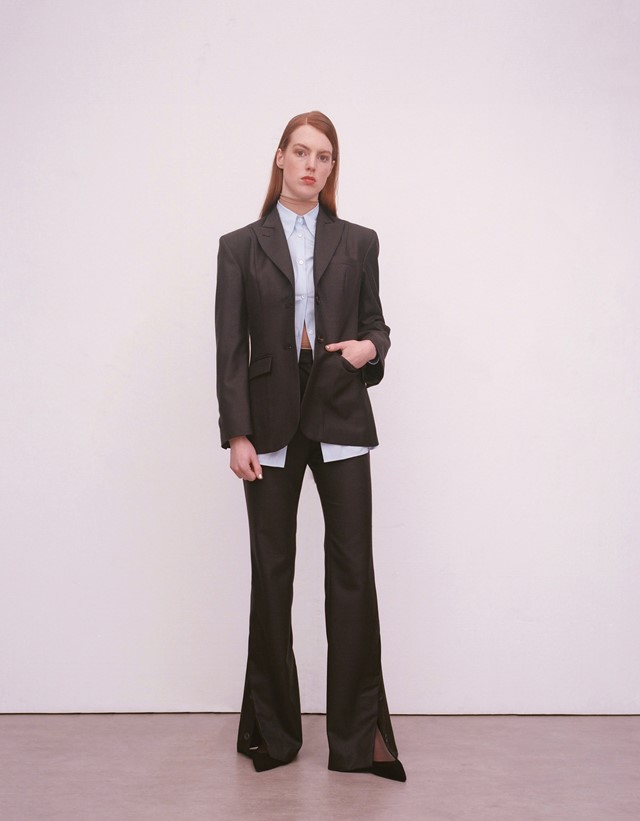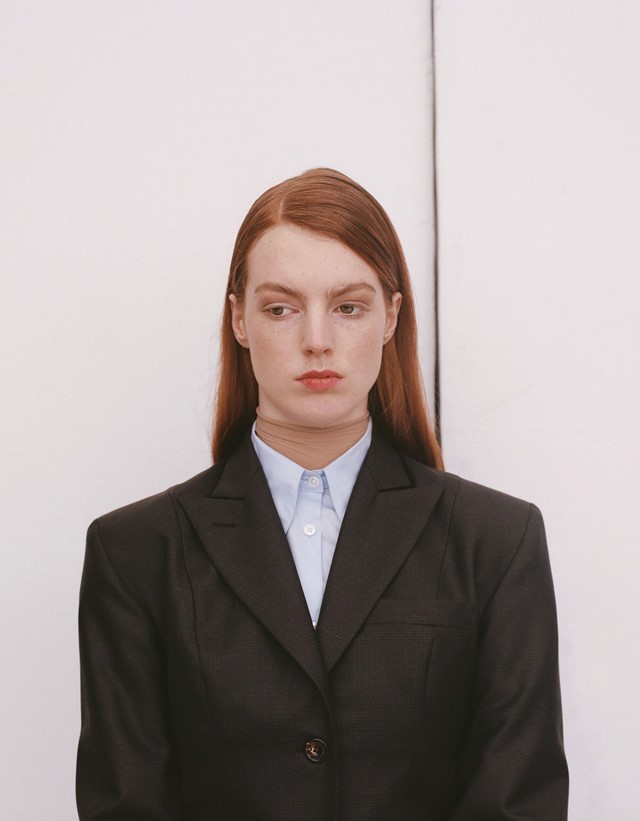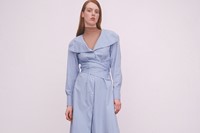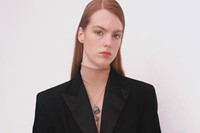Wright Le Chapelain is the London-based brand clashing masculine and feminine tropes of dress, and making a case for sustainability in the process
- Who is it? Wright Le Chapelain is a London-based womenswear brand founded by Central Saint Martins graduates Imogen Wright and Vincent Le Chapelain
- Why do I want it? Menswear meets womenswear to create classic silhouettes with a twist – all made in the finest British-sourced fabrics
- Where can I find it? Online at Browns Fashion and Farfetch
Who is it? Like many design graduates, Imogen Wright and Vincent Le Chapelain found themselves facing a difficult decision upon completing their studies (in womenswear and menswear respectively) on whether to start their own label or follow other pursuits. Choosing the latter, Wright worked under Christopher Bailey at Burberry, while Le Chapelain followed a career assisting photographers – a creative outlet that would later inform his approach to design.
After a year, the pair decided it was time to put what they had learnt into practice. “Working for somebody else I wasn’t expressing my own vision as much as I’d like,” explains Wright. “We were mulling over ideas until it got to the point where we both decided ‘okay, let’s actually try and build something together’.” The result? Wright Le Chapelain, a label that has, in the short time since its founding, begun making a strong case for its off-kilter take on wardrobe classics. “Giving women a wardrobe that they don’t always have access to,” is how Le Chapelain describes it. “It just felt like the right time for us to do that together.”
As both business and romantic partners, the duo celebrate the differences in each other’s approach to design, with Wright pooling her personal experiences of wearing clothes as a woman and Le Chapelain adding a more removed, male perspective. “For me it was a lot about how the clothes feel when you wear them and this idea of almost breaking down something that’s quite a strict wardrobe but making it feel really comfortable,” Wright explains. “It’s important to have this feeling of being empowered when you wear the pieces, but still feel comfortable in your skin.”
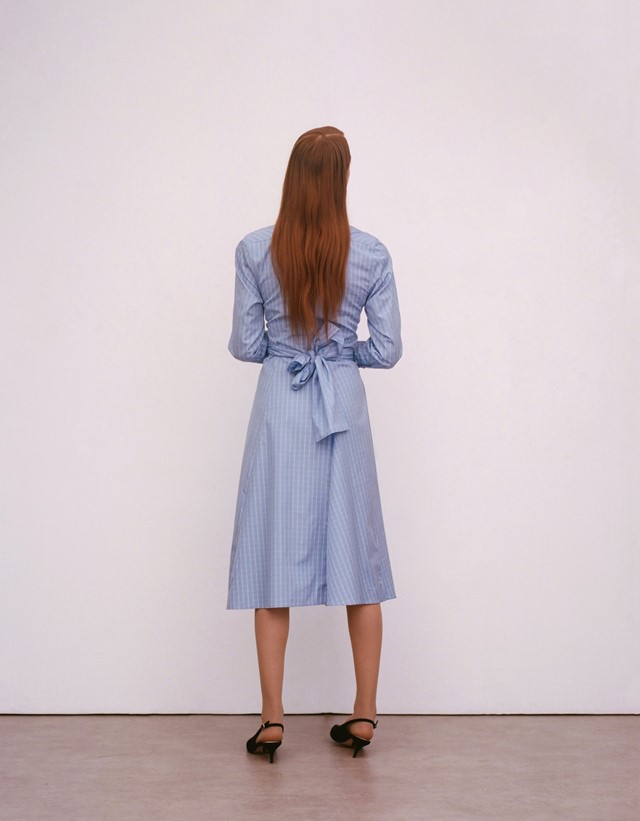
Why do I want it? For the label’s debut – Collection 01 – this manifested in the form of eight distilled looks made in high-quality, British-sourced fabrics. Combining the pair’s viewpoints, it struck a balance between traditional masculine fabrics and feminine fits that wouldn’t look out of place in an (albeit chic) office environment.
There’s always more than meets than eye though, with off-kilter details to subvert the business-like clothing. “I always ask myself: How can I make that different? How can I make something new with this? How can I challenge people’s views with different combinations of fabrics?” Le Chapelain says. Shirts are cut asymmetrically; a pair of trousers in masculine Prince of Wales check are flared at the ankle.
“When I see a woman walk down the tube and she’s wearing a shirt, it might be a bit off-centre, but it’s more about the way she stands or her persona,” Wright explains. “It’s about when you’re so comfortable in your skin, you’re relaxed and almost a bit dishevelled. I tried to get that feeling into the pieces.”
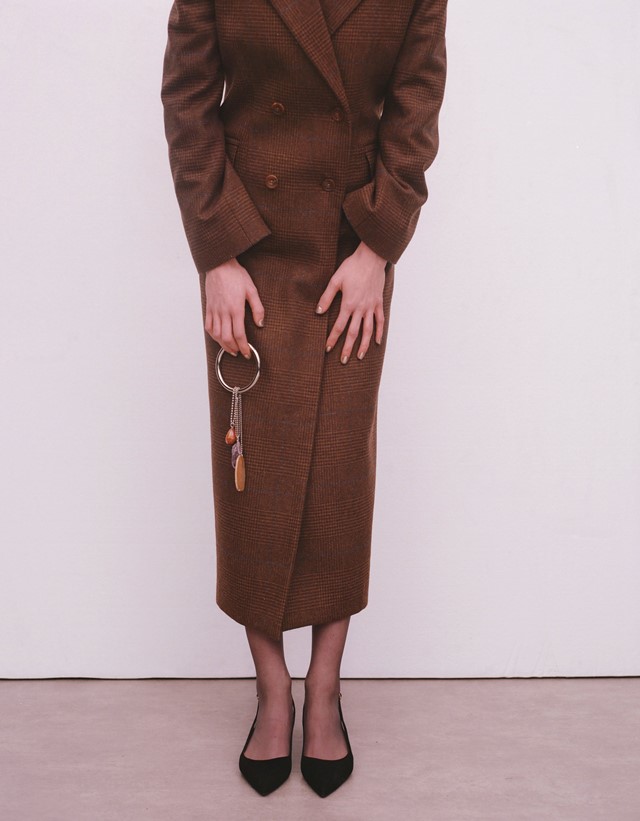
For the newly released Collection 02, the label’s repertoire grew to include excellent tailoring and outerwear – with the perfect power shoulder – balanced out with playful touches, like shirting with holes exposing the naval. Elsewhere, they explored a more casual side of their woman, presenting high-waisted denim, complete with whimsical crystal charms hanging at the hip. They are the first to call themselves multidisciplinary designers, too; the lookbook images were styled by Wright and lensed by her partner. “It’s nice to have different mediums to express yourself,” says Le Chapelain.
Besides the obvious visual appeal and high-quality fabrics, sustainability is also at the core of Wright Le Chapelain’s collections. Not a sustainable brand per se – “anyone who’s producing anything is polluting in some aspect,” says Le Chapelain – the focus is to reduce waste and increase traceability. “We try to source clothes and fabrics that are local to us as much as possible,” he continues. “We even know where the yarn and wool is from, and how it is dyed and woven.” As the label continues to grow, the duo are working hard to keep the same standard. “Our dream is to work with skilled tailors that are also based in the UK,” Wright says.
Looking ahead, the pair are keen to continue strengthening the foundations of the label. “The first collection was only eight looks,” says Le Chapelain. “So we feel that within that wardrobe there are pieces that we haven’t created yet, and we want to keep on exploring that.”
